
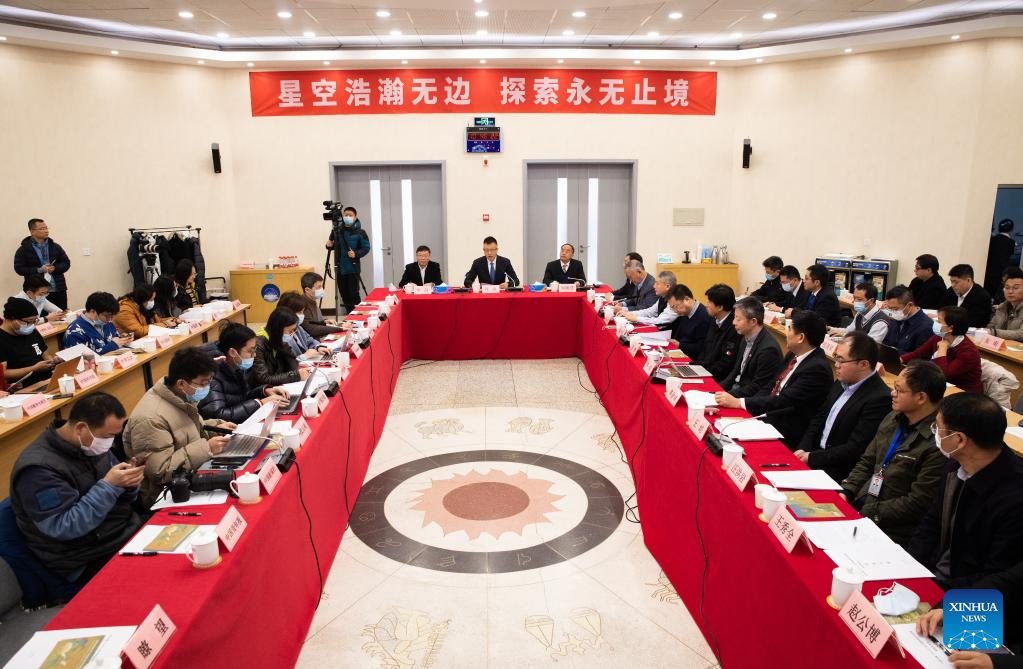
A press conference of the National Astronomical Observatories of China under the Chinese Academy of Sciences is held on Jan. 5, 2022. (Xinhua/Jin Liwang)
Using the Five-hundred-meter Aperture Spherical Radio Telescope (FAST), also dubbed as the "China Sky Eye," scientists have obtained accurate magnetic field strength in molecular cloud, a region of the interstellar medium that seems ready to form stars.
Employing the technique of HI Narrow Self Absorption (HINSA), they achieved a clear detection of the Zeeman effect -- the splitting of a spectral line into several components of frequency in the presence of a magnetic field. It is the only direct probe of interstellar magnetic field strength.
The result suggested that such clouds achieve supercritical state, a critical point when they collapse into stars, happened earlier than previously thought based on the standard model.
The study was published in Nature on Thursday. (Xinhua)

Aerial panoramic photo taken on Dec. 19, 2021 shows China's Five-hundred-meter Aperture Spherical Radio Telescope (FAST) under maintenance in southwest China's Guizhou Province. (Xinhua/Ou Dongqu)
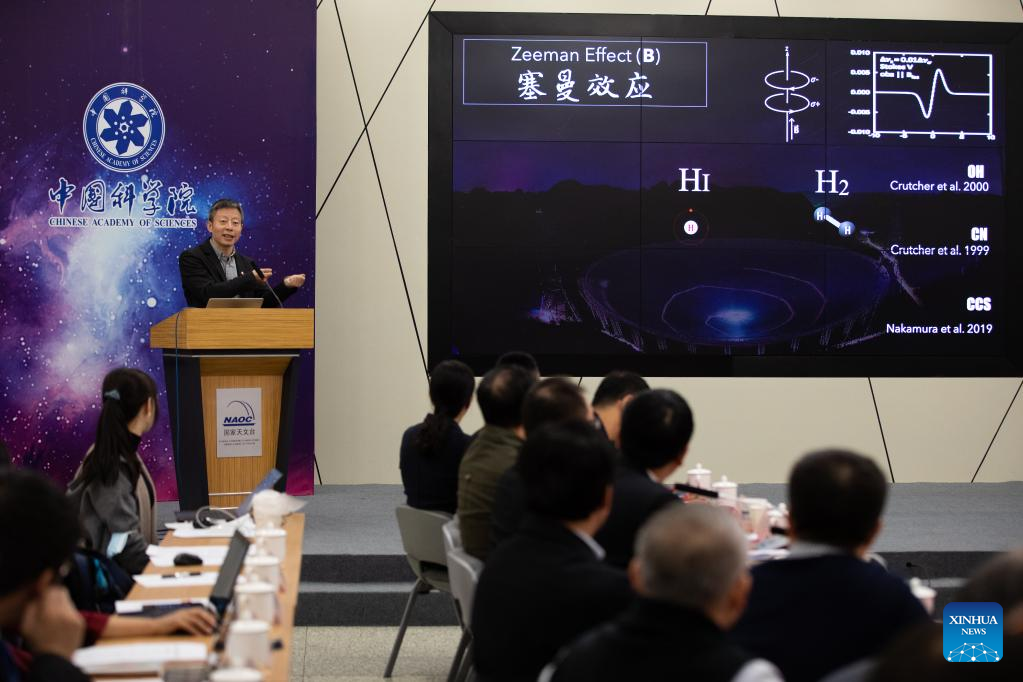
Li Di, a scientist of China's Five-hundred-meter Aperture Spherical Radio Telescope (FAST), speaks at a press conference held in Beijing, capital of China, Jan. 5, 2022. (Xinhua/Jin Liwang)
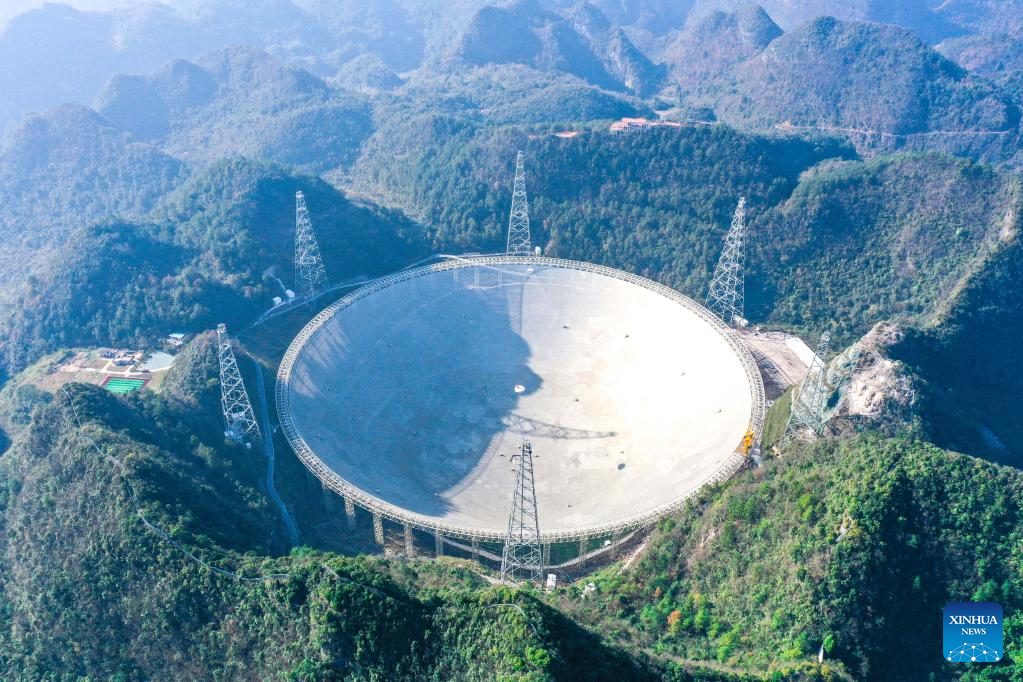
Aerial panoramic photo taken on Dec. 19, 2021 shows China's Five-hundred-meter Aperture Spherical Radio Telescope (FAST) under maintenance in southwest China's Guizhou Province. (Xinhua/Ou Dongqu)
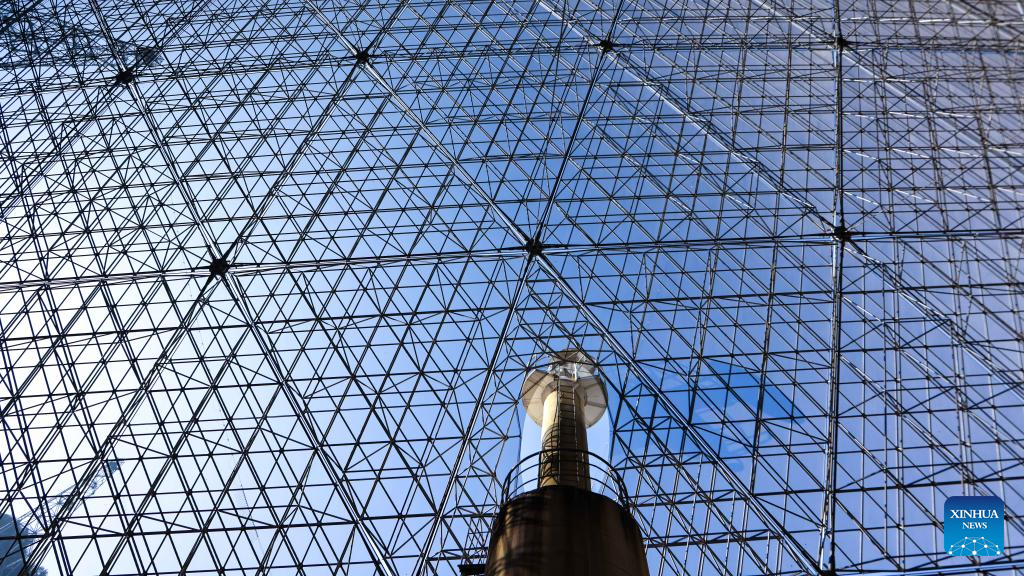
Aerial photo taken on Dec. 19, 2021 shows a view of China's Five-hundred-meter Aperture Spherical Radio Telescope (FAST) under maintenance in southwest China's Guizhou Province. (Xinhua/Ou Dongqu)
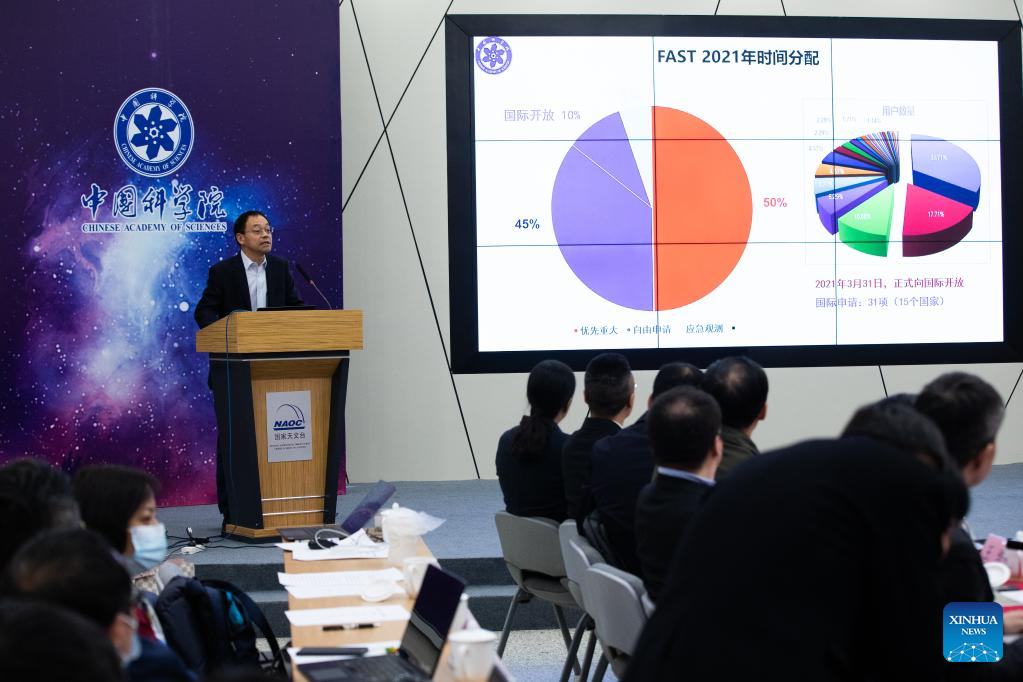
Wu Xiangping, an academician with the Chinese Academy of Sciences, speaks at a press conference held in Beijing, capital of China, Jan. 5, 2022.(Xinhua/Jin Liwang)
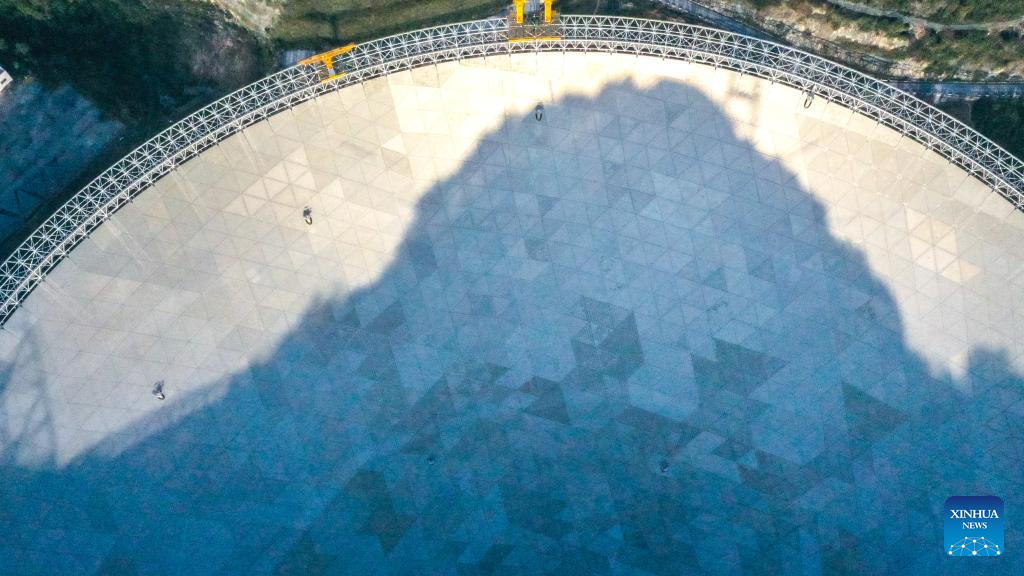
Aerial photo taken on Dec. 19, 2021 shows a view of China's Five-hundred-meter Aperture Spherical Radio Telescope (FAST) under maintenance in southwest China's Guizhou Province. (Xinhua/Ou Dongqu)
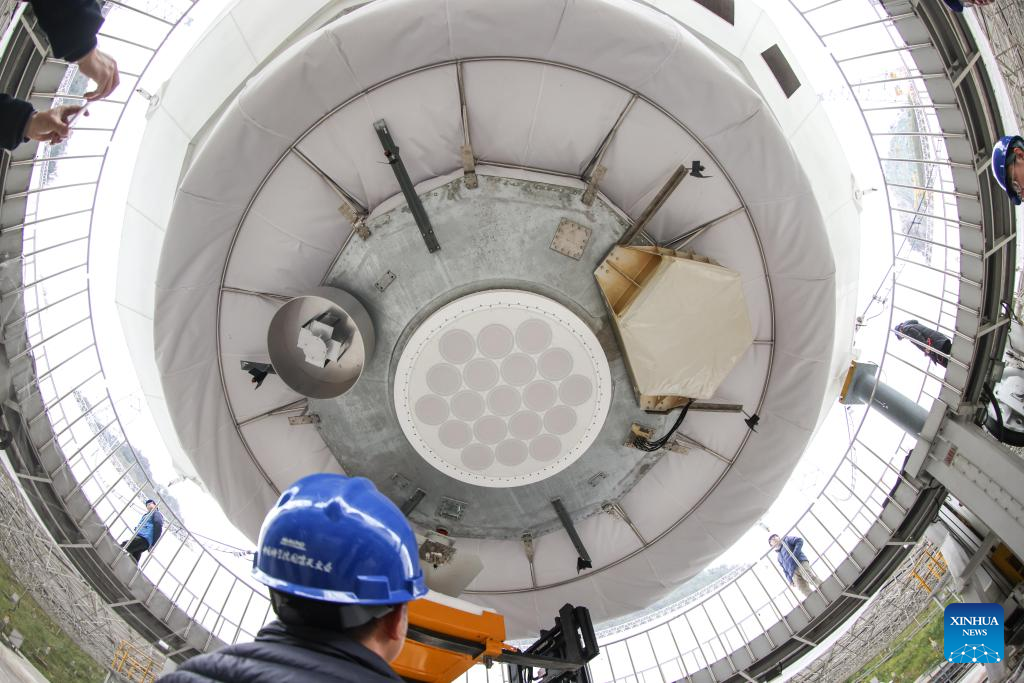
A staff member works on the feed cabin during a regular maintenance operation to the Five-hundred-meter Aperture Spherical Radio Telescope (FAST) in southwest China's Guizhou Province, Dec. 17, 2021. (Xinhua/Ou Dongqu)

Aerial panoramic photo taken on Dec. 19, 2021 shows China's Five-hundred-meter Aperture Spherical Radio Telescope (FAST) under maintenance in southwest China's Guizhou Province. (Xinhua/Ou Dongqu)
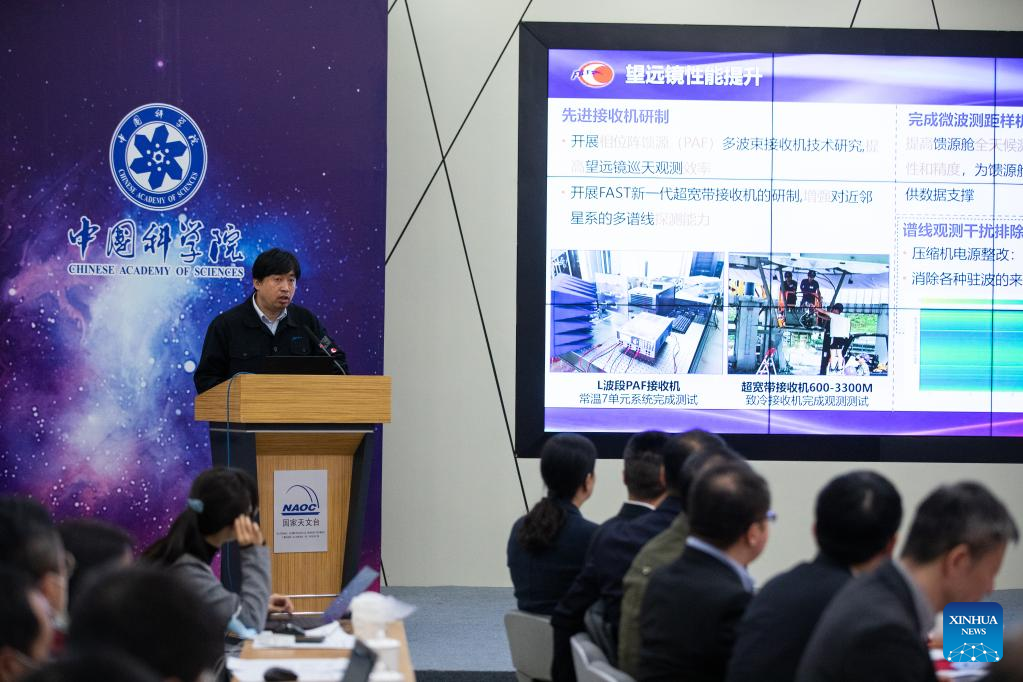
Jiang Peng, chief engineer of China's Five-hundred-meter Aperture Spherical Radio Telescope (FAST) with the National Astronomical Observatories of China (NAOC) of the Chinese Academy of Sciences, speaks at a press conference held in Beijing, capital of China, Jan. 5, 2022. (Xinhua/Jin Liwang)

A staff member checks reflector panels during a regular maintenance operation to the Five-hundred-meter Aperture Spherical Radio Telescope (FAST) in southwest China's Guizhou Province, Dec. 17, 2021.(Xinhua/Ou Dongqu)
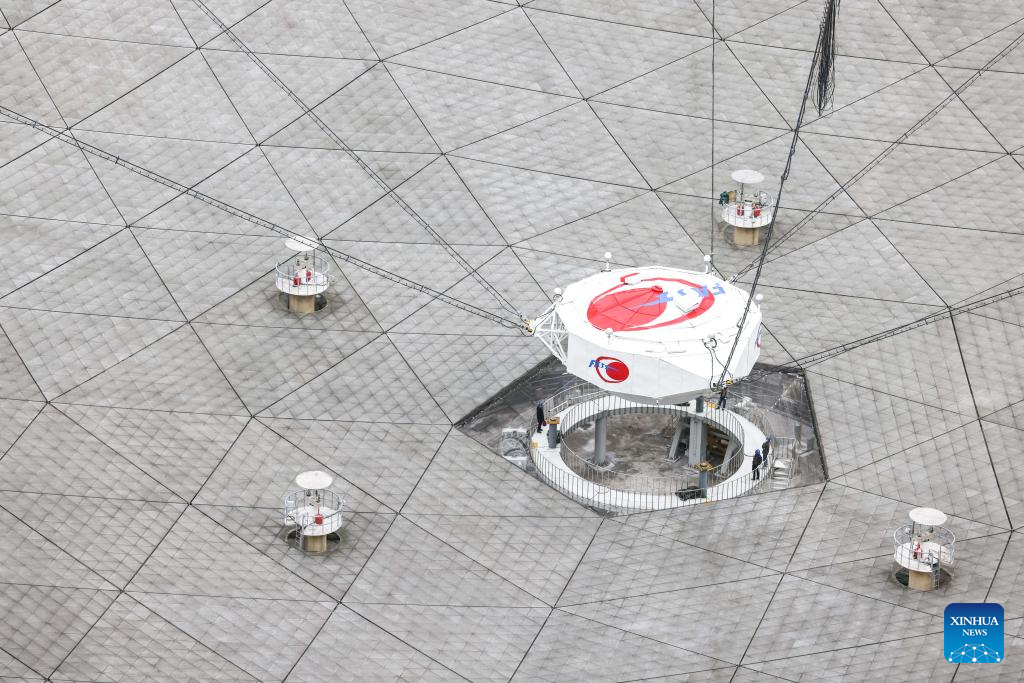
Photo taken on Dec. 17, 2021 shows the feed cabin during a regular maintenance operation to the Five-hundred-meter Aperture Spherical Radio Telescope (FAST) in southwest China's Guizhou Province. (Xinhua/Ou Dongqu)
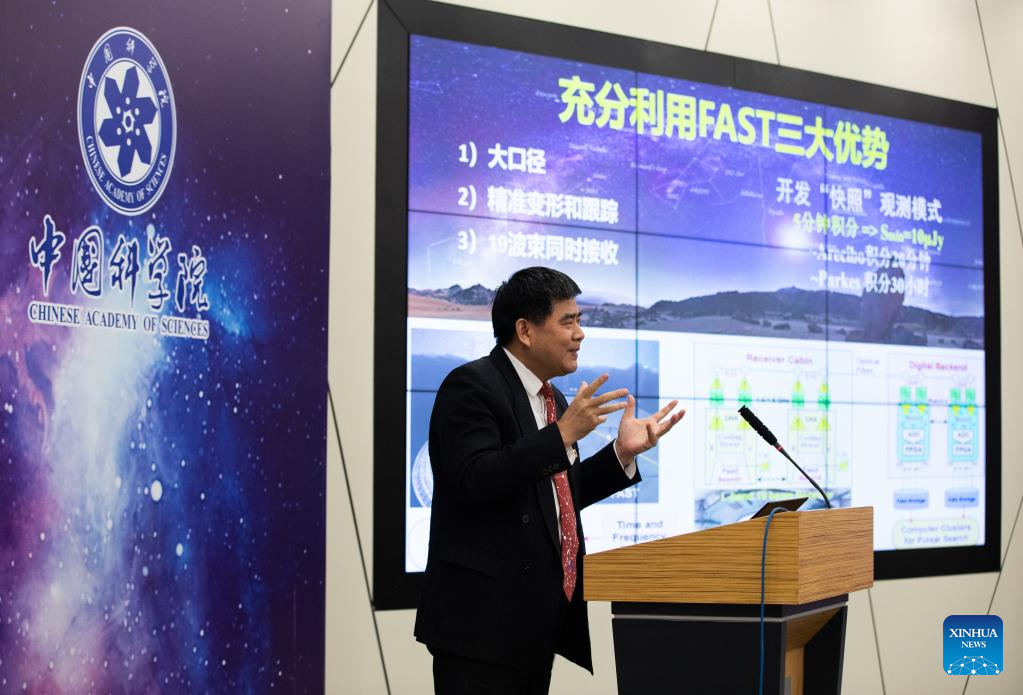
Han Jinlin, an expert with the National Astronomical Observatories of China (NAOC) of the Chinese Academy of Sciences, speaks at a press conference held in Beijing, capital of China, Jan. 5, 2022. (Xinhua/Jin Liwang)
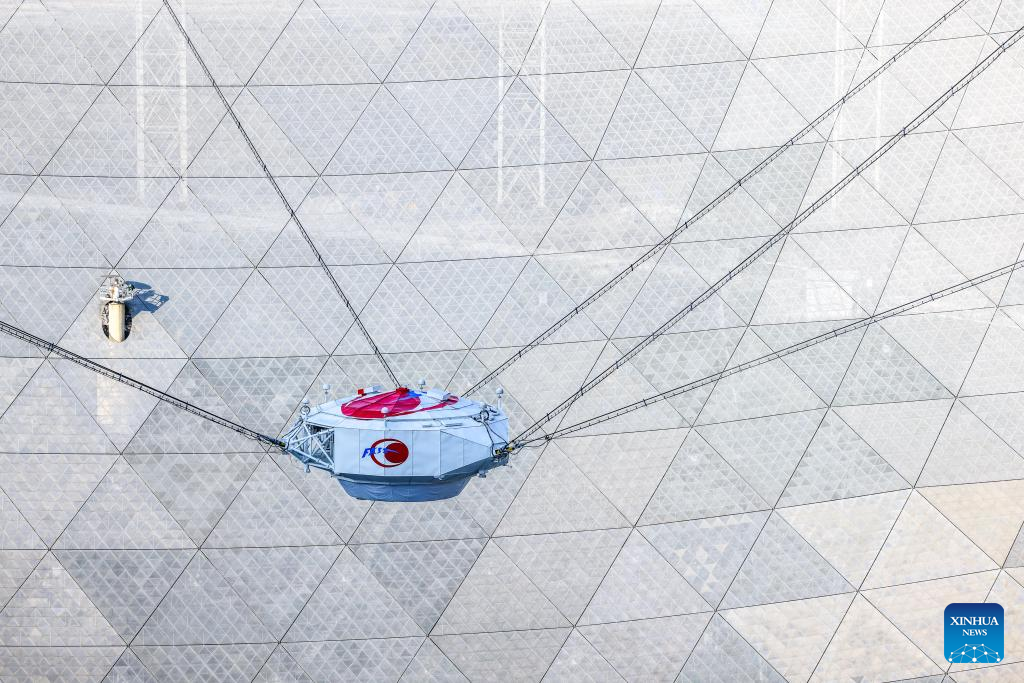
Photo taken on Dec. 19, 2021 shows the feed cabin during a regular maintenance operation to the Five-hundred-meter Aperture Spherical Radio Telescope (FAST) in southwest China's Guizhou Province. (Xinhua/Ou Dongqu)
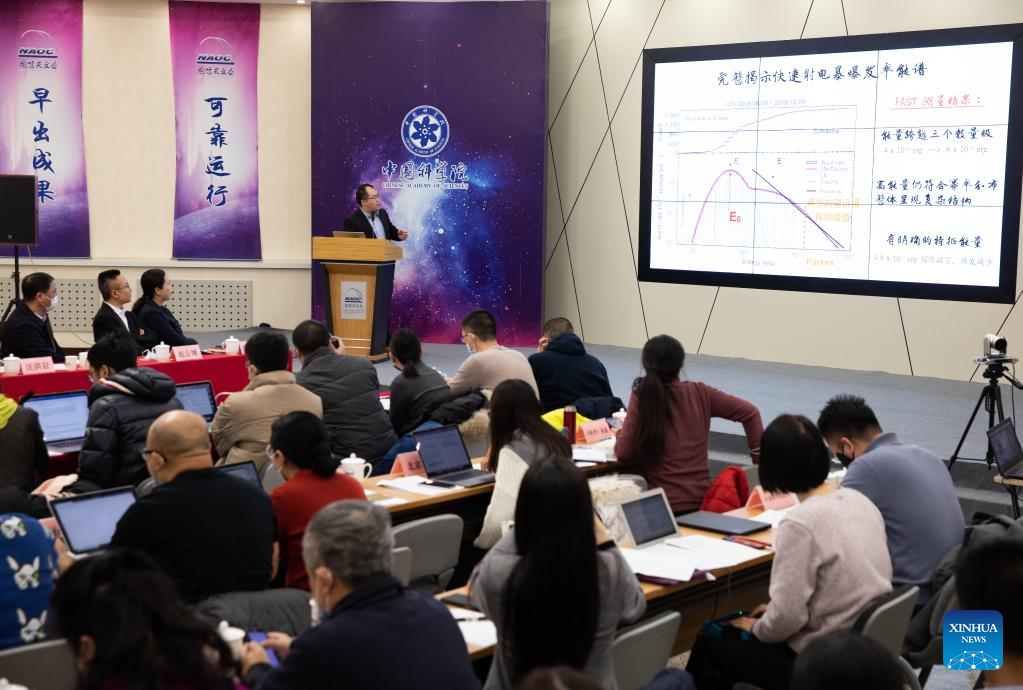
Wang Pei, an expert with the National Astronomical Observatories of China (NAOC) of the Chinese Academy of Sciences, speaks at a press conference held in Beijing, capital of China, Jan. 5, 2022. (Xinhua/Jin Liwang)
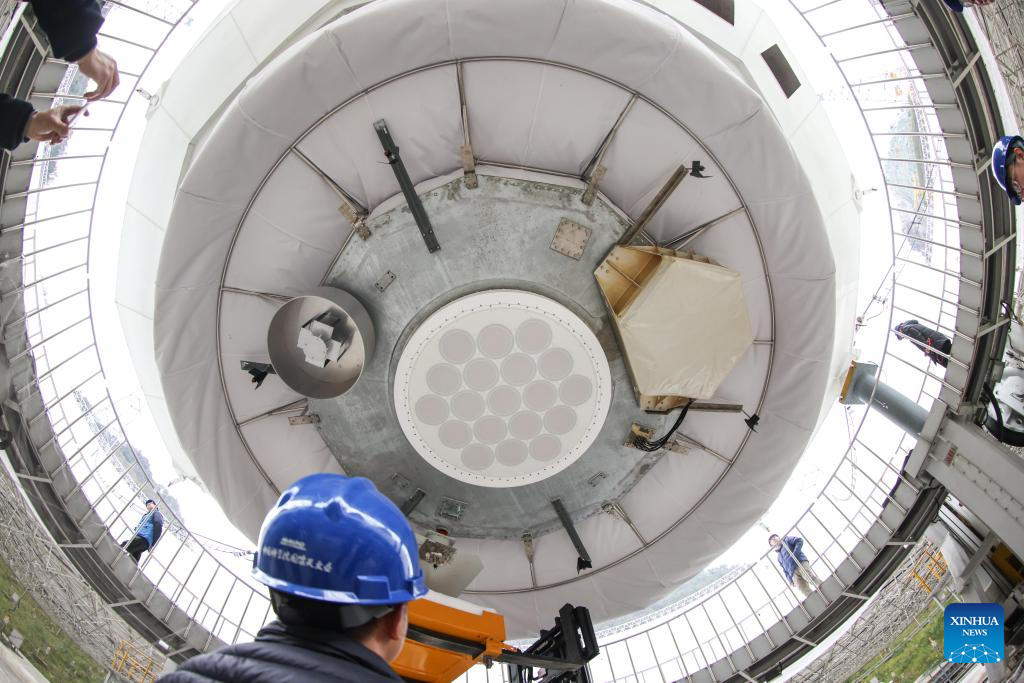
Photo taken on Dec. 19, 2021 shows the feed cabin during a regular maintenance operation to the Five-hundred-meter Aperture Spherical Radio Telescope (FAST) in southwest China's Guizhou Province. (Xinhua/Ou Dongqu)

86-10-68597521 (day)
86-10-68597289 (night)

52 Sanlihe Rd., Xicheng District,
Beijing, China (100864)

